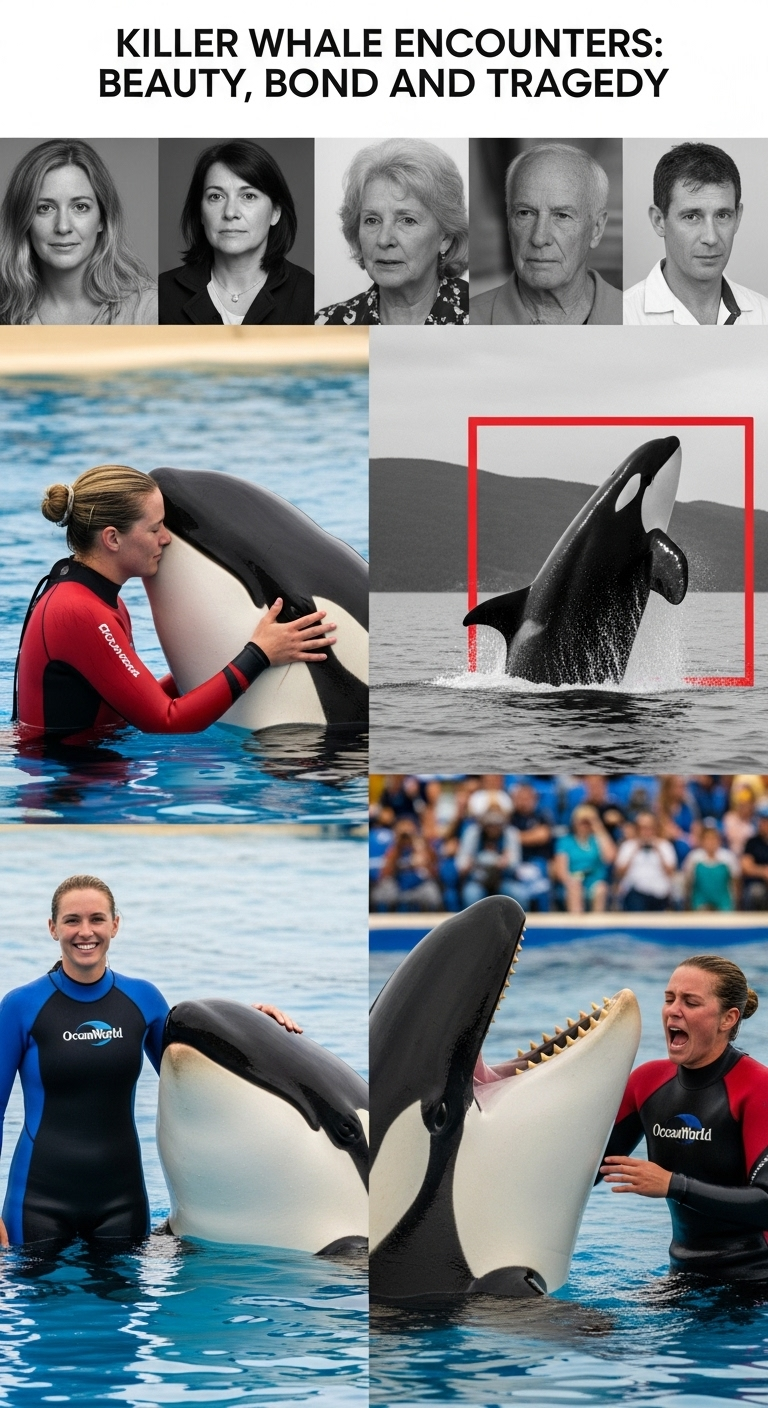TRAGEDY AT BLUE OCEAN PARK: The Red Water and The Question We Can No Longer Ignore
It’s the kind of video you can’t unsee. One minute, it’s the manufactured joy of a family theme park. The sun is glinting off the surface of a massive pool, upbeat music is pumping through the speakers, and a trainer is sharing a moment of connection with one of the ocean’s most majestic predators.
The next, it’s chaos.

In a viral clip now dominating social media, a killer whale’s sudden, violent turn leaves a stunned audience in an arena filled with screams. There was no warning. No sign of aggression. Just the sound of cold water exploding upwards… and breathless terror.
Seconds later, the water turns red.
Trainer Jessica Radcliffe, a 12-year veteran of marine biology and animal care, has been pulled under. The show, the music, the illusion—it all shattered in an instant, replaced by a primal horror we are never meant to witness up close.
Jessica was known by her colleagues as someone who lived for the ocean and its inhabitants. Her social media was a testament to her passion, filled with photos of her work not just in the park, but on conservation missions in the wild. She wasn’t just a performer; she was a scientist who believed she was building a bridge between humanity and these magnificent animals. She dedicated her life to them. In the end, one of them took it.
As the tragic news spreads, the internet is grappling with the raw footage. But beyond the shock and the morbid curiosity lies a question that has been simmering for decades, a debate that has now reached a terrible, bloody crescendo.
The immediate reaction is to look for a villain. Some will blame the whale, a 6-ton apex predator nicknamed ‘Triton’ by the park. They will call it a monster, a “killer” living up to its name. But this is a profound and dangerous misreading of the situation. Orcas in the wild have almost no record of fatally attacking humans. They are highly intelligent, emotionally complex creatures with intricate social structures that span generations. They are not monsters. They are predators. And we have put them in a box.
Triton was born in captivity. He has never felt the ocean currents or hunted with his pod across hundreds of miles of open sea. His world is concrete walls, chemically treated water, and the applause of a crowd. His social life is an artificial pod, curated by his keepers. His days are a routine of performing tricks for frozen fish.
This isn’t to absolve the animal of its actions, but to contextualize them. Can we truly be surprised when a wild animal, no matter how well-trained or seemingly docile, eventually acts on an instinct we can never fully comprehend or condition away? Can we cage a storm and be shocked when it finally breaks?
The real conversation isn’t about a “rogue whale” or even a single, tragic mistake by a trainer. It’s about the stage itself. It’s about Blue Ocean Park and every other marine park like it. For years, they have operated under the banners of “education” and “conservation.” They argue that seeing these animals up close fosters a love that encourages environmental protection.
But what does it truly teach us to see an orca wave its pectoral fin or beach itself on a slide-out for our entertainment? Does it teach us about the complex, beautiful, and sometimes brutal reality of nature? Or does it teach us that the wildest things on this planet can be tamed for our amusement—a lie that Jessica Radcliffe has now paid for with her life.
The screams in that arena were not just for the trainer. They were the screams of a fantasy collapsing. The illusion of a happy, dancing whale was ripped away, revealing the raw, untamable power beneath.
Jessica Radcliffe’s passion was undeniable. Her love for these animals was real. But we must honor her memory by asking the hardest question of all: Does our love for these animals justify their captivity?
The water at Blue Ocean Park has turned red. It’s a stain that no amount of PR or park cleanup can ever truly wash away. It’s a tragic, public call for a reckoning. A call to admit that perhaps some beauty is too wild to be contained, and that the price of the ticket has always been far too high.



